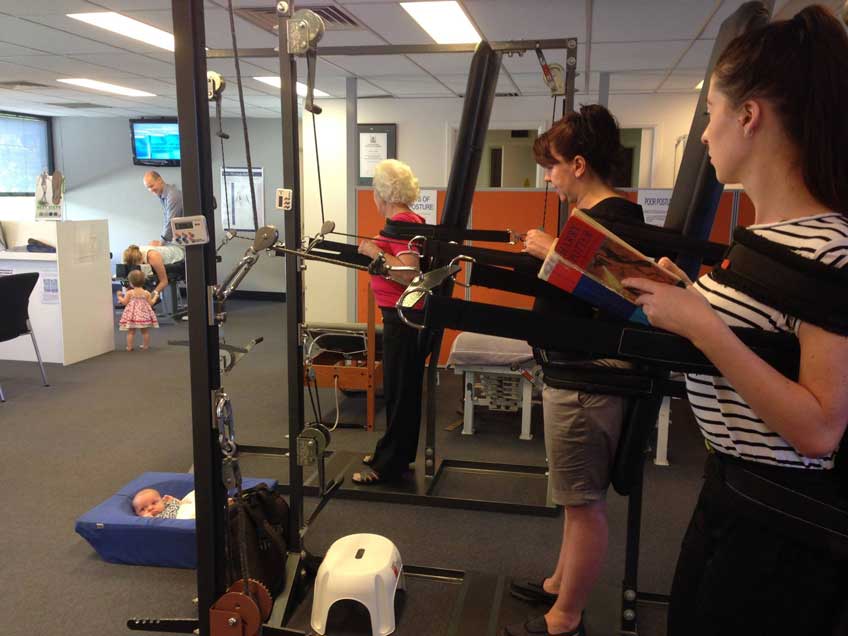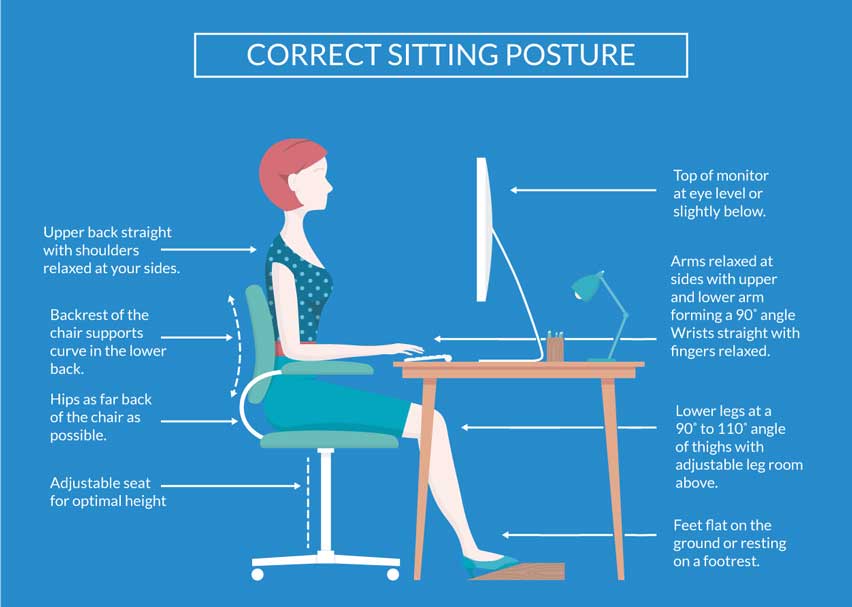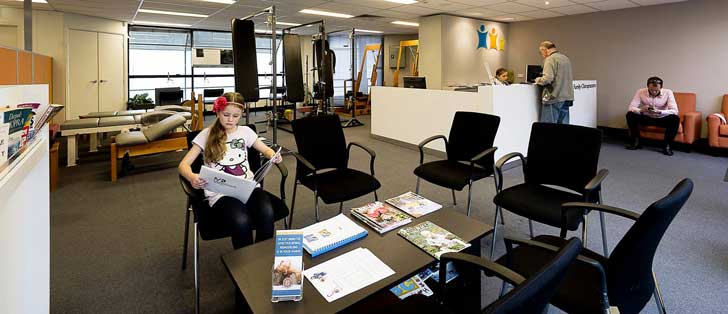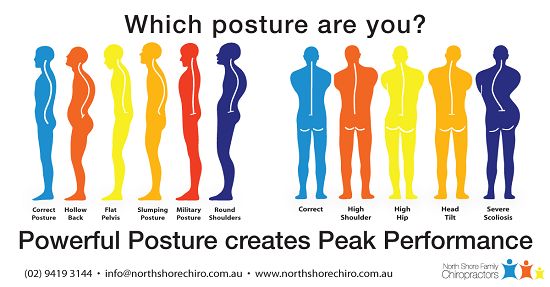How your posture impacts your health
| Friday February 24We regularly donate our time performing free postural assessments in the community and answering questions that people have about their spines and health. Identifying unhealthy and abnormal posture is of great importance because it is related to so many chronic problems.

Why is Posture so important?
Did you know that unhealthy posture is a strong indicator of early spinal disease and can lead to pain, fatigue, headaches, breathing difficulties and lack of confidence? Posture is also related to morbidity (disease) and mortality (death). In fact, the volume of research linking both quality of life and longevity of life to healthy posture convinces us that it must be a primary focus when treating clients. After all, what more important role is there than helping you to live a long, healthy life?
What are the causes of bad posture?
Bad posture can be caused by multiple factors including poor spinal structure, bad habits, weak muscles or a muscle imbalance, injuries and old age.
Having said that, the increased use of computers, smart phones, laptops and tablets/iPads means that postural problems are more common than ever before. To give you an idea of the impact technology has on our spine and posture consider these statistics. Smartphone users spend an average of two to four hours per day hunched over, reading e-mails, sending texts or checking social media sites. That’s 700 to 1,400 hours per year people are putting unhealthy stress on their spines.
Looking down too frequently and for long periods of time can result in neck pain, headaches, muscle strain, pinched nerves or even herniated discs (a condition called “text neck”). Over time it can also cause early wear and tear on the spine, degeneration and loss of the neck’s natural curve.

So, what can be done to minimise or prevent the risk of developing such problems?
To get you started on your journey to better posture:
When sitting:
- The natural tendency for most people when sitting for a long period is to slouch forward. To avoid this, position your buttocks all the way to the back of the seat. Then adjust your chair position close enough to your desk so that your arms and elbows can relax while working.
- Sitting for extended periods of time can stress your spine, including your back and neck, so getting out of your chair every 30-60 minutes can be helpful.
- Try taking a short walk around the office, coupled with a good stretch!
- Avoid crossing your legs as that rotates the pelvis creating stress on your low back and hips.
When using smart phones, laptops and tablets
Here are some tips to avoid development of text neck:
- Hold your mobile device at eye level as much as possible
- Position your laptop or tablet at eye level – if this is not possible place a cushion under your lap or tablet to improve posture.
- Take frequent breaks from your phone and laptop throughout the day. Every 20 to 30 minutes is ideal!
Any prolonged period when your head is looking down is a time when you are putting excessive strain on your neck. Therefore be mindful of your posture at all times (eg. is your head bent forward when you drive? When you watch TV?)

At North Shore Family Chiropractors (Chatswood) we pride ourselves on being Sydney’s leading spine and posture correction specialist. We believe in creating healthy spines for life, which starts with good posture. We use state of the art technology to accurately and completely assess your posture. From there an individualised treatment plan is developed, including exercises in our specialised gym, to help restore proper alignment and posture.
Healthy posture is a lifelong journey and the more proactive we are in maintaining it, the more we can benefit.
You can read more about poor posture causes, symptoms and correction techniques at: www.northshorechiro.com.au/posture-correction-chatswood





